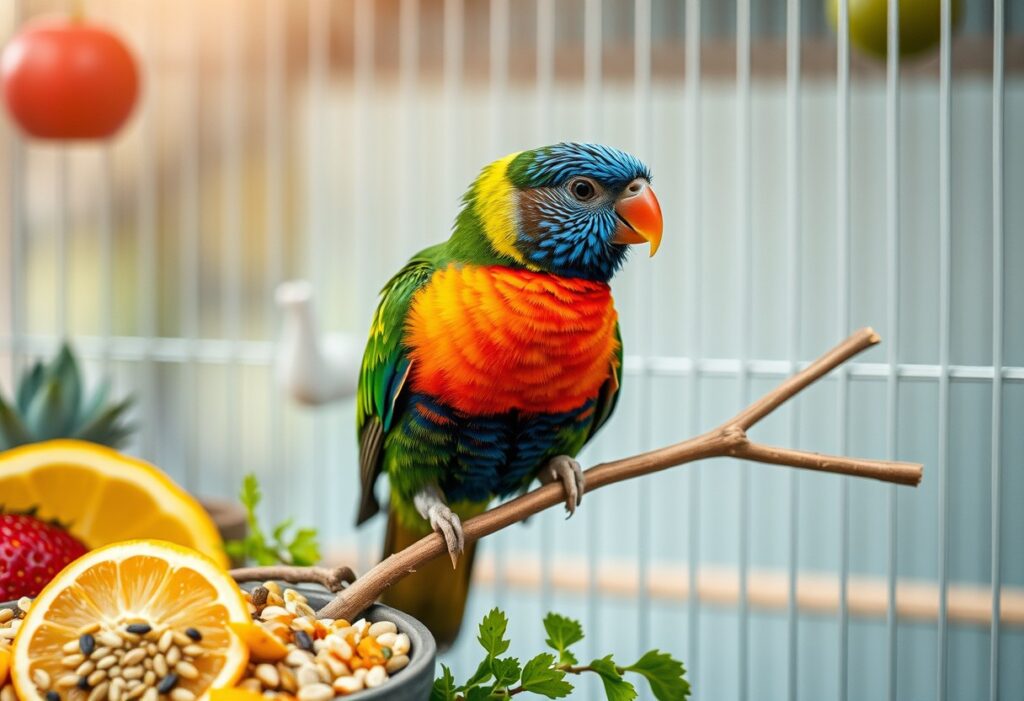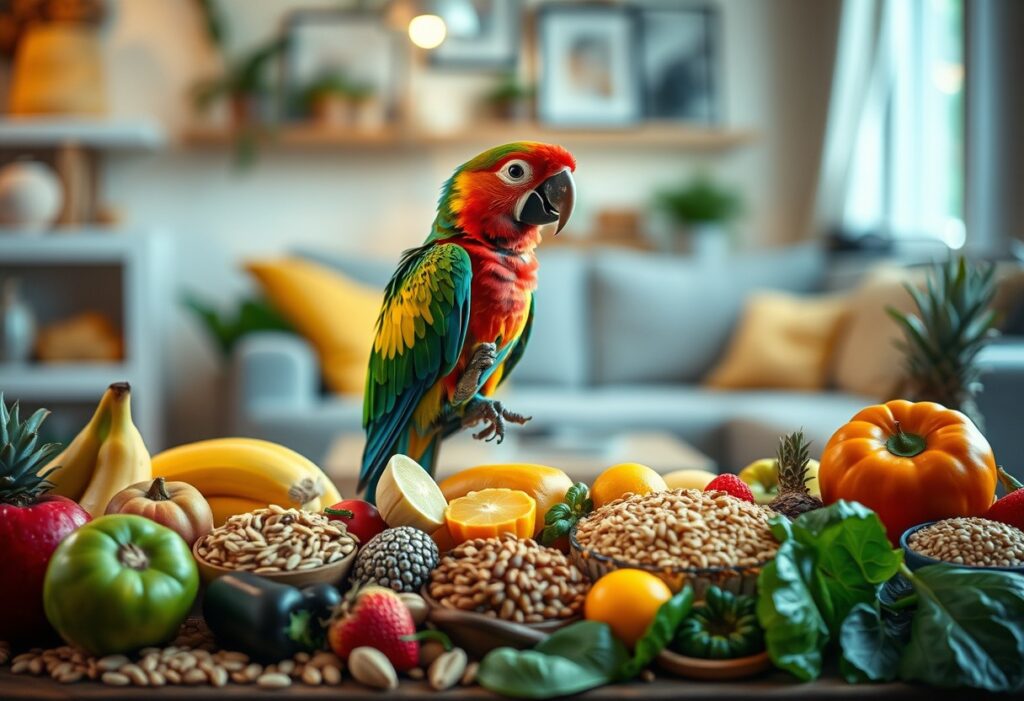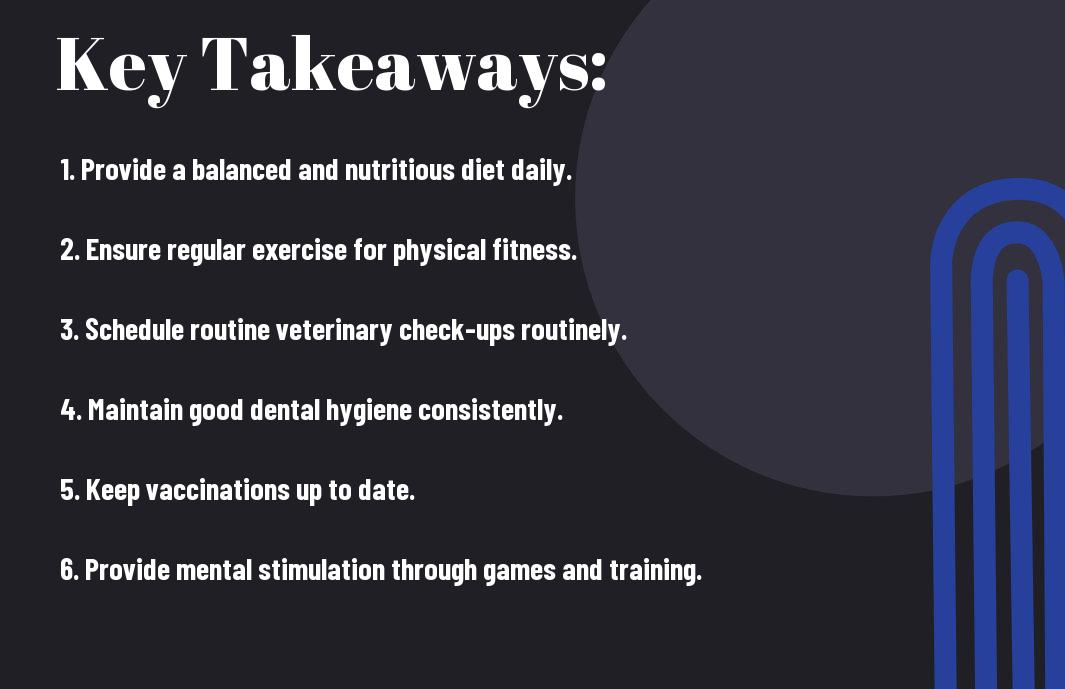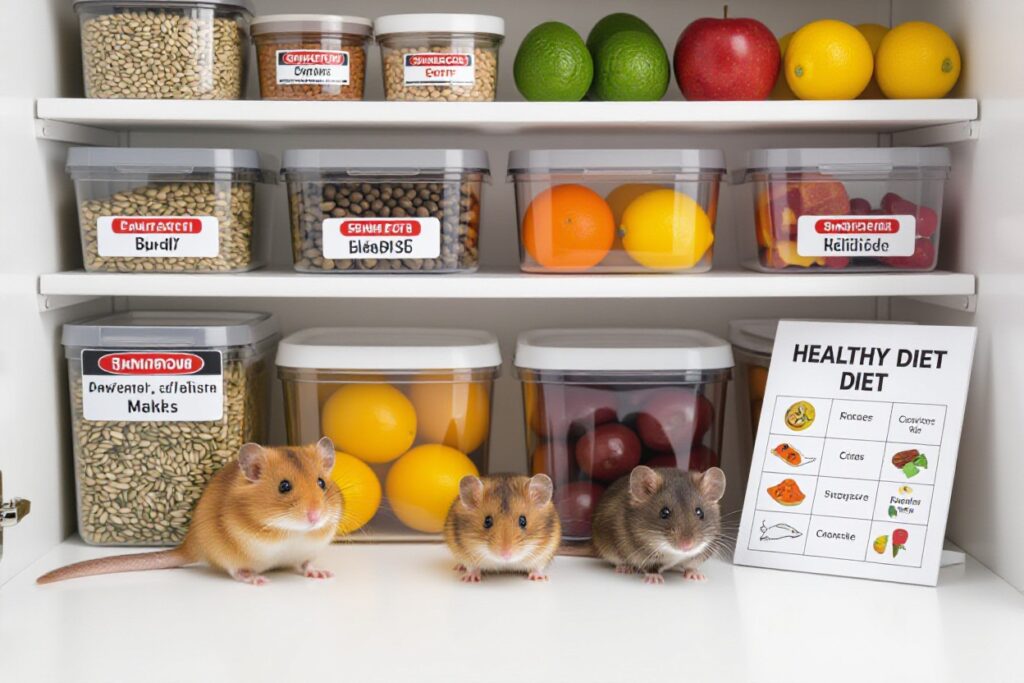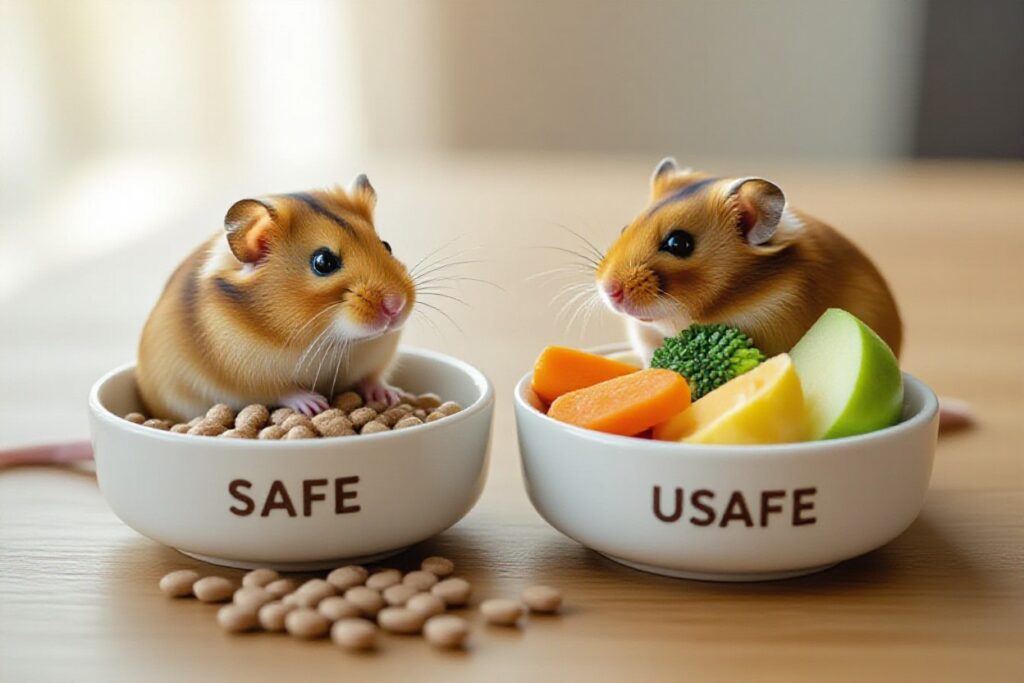You have the power to significantly enhance your feathered friend’s life by providing a healthy diet. A balanced diet contributes to stronger immune systems, vibrant plumage, and overall well-being. Without proper nutrition, your bird may face serious health risks, including obesity and malnutrition. By incorporating a variety of fresh fruits, vegetables, and high-quality pellets, you can help your bird thrive. Understanding the importants of avian nutrition is crucial to ensuring your pet enjoys a long, happy, and healthy life.
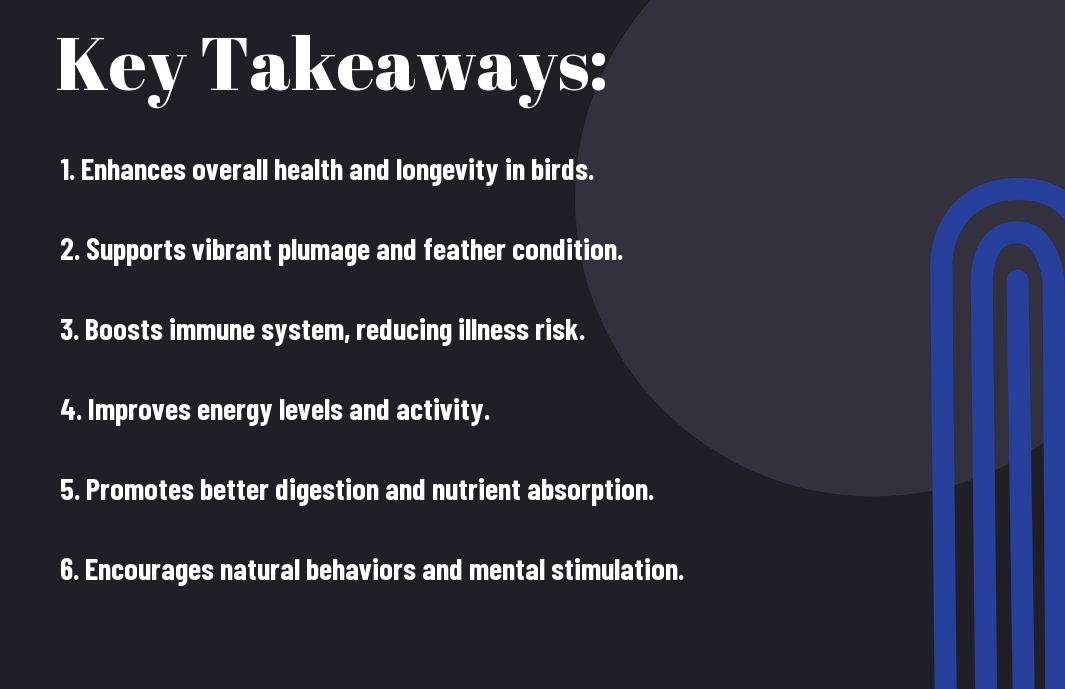
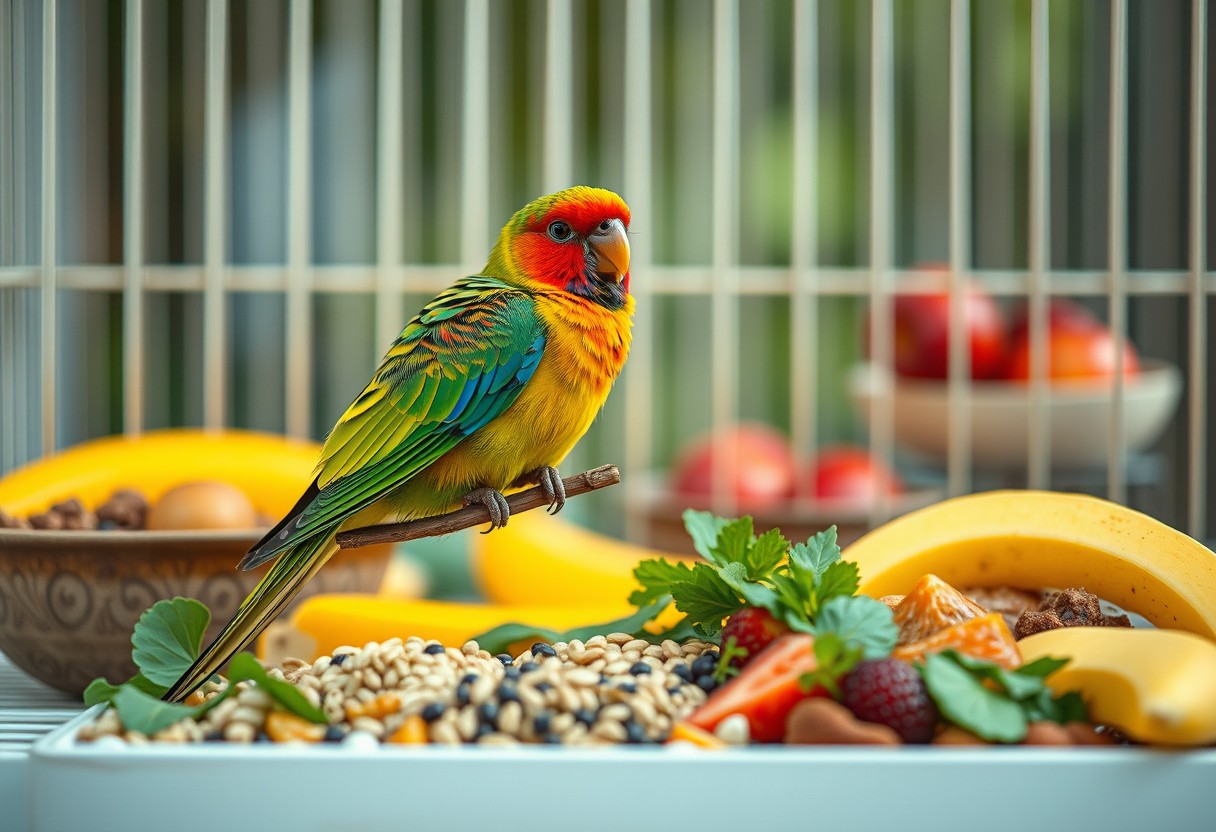
Understanding Bird Nutrition
For anyone who enjoys caring for birds, understanding their nutritional needs is crucial to their overall health and well-being. Birds require a balanced diet that meets their specific dietary needs based on their species, age, and activity level. Like humans, birds rely on a variety of vital nutrients to maintain their energy levels, support their immune systems, and promote healthy growth and reproduction. Proper education in bird nutrition not only enhances their quality of life but also strengthens the bond between you and your feathered companions.
Essential Nutrients for Birds
One of the primary components of a healthy diet for birds includes a mix of protein, fats, carbohydrates, vitamins, and minerals. These vital nutrients serve various functions in a bird’s body, from building muscle and providing energy to ensuring proper metabolic processes. For instance, proteins are crucial for repairing tissues and producing feathers, while healthy fats provide concentrated energy. Furthermore, vitamins such as Vitamin A and D, along with vital minerals like calcium and phosphorus, play vital roles in maintaining your bird’s overall health.
Another important aspect of a nutritious diet is the inclusion of fresh fruits and vegetables, which provide antioxidants and fiber necessary for optimal digestion. Each bird species may have unique preferences regarding their diet, so it’s vital to research the specific needs of your pet. By offering a well-balanced diet rich in vital nutrients, you are not only promoting your bird’s physical health but also enhancing its mental well-being, leading to a happier and more interactive companion.
Common Dietary Deficiencies
Understanding your bird’s dietary habits is important in preventing common dietary deficiencies. Many pet owners may mistakenly provide a diet that lacks diversity, leading to nutritional gaps that can have serious consequences for their feathered friend. A diet consisting mainly of seeds, for instance, might lack the vital vitamins and minerals needed to keep your bird healthy. Inadequate intake of key nutrients can result in various health issues, including weakened immune systems, poor feather quality, and even behavioral problems.
To avoid such deficiencies, it’s necessary to monitor your bird’s diet closely and incorporate a wide range of foods. Ensure that your bird’s diet includes a variety of seed mixes, high-quality pellets, fresh fruits, and vegetables. Supplementing their diet with small amounts of cooked grains or legumes can also provide additional vital nutrients. Understanding these nutritional guidelines will go a long way in ensuring that your bird thrives and remains full of life.
Health Benefits of a Balanced Diet
While many bird owners may focus on basic nutrition, a balanced diet provides numerous health benefits that cannot be overlooked. Ensuring that your feathered friends receive a mix of fruits, vegetables, grains, and protein sources is imperative for their overall well-being. A healthy diet not only supports their physical health but also enhances their mental well-being, allowing them to thrive in both mind and body.
Improved Immune Function
Health is directly linked to the quality of food you provide for your birds. A balanced diet rich in imperative vitamins and minerals strengthens your birds’ immune systems, equipping them to fend off common diseases and health issues. For instance, diets high in vitamin C, found in a variety of fruits and vegetables, help boost immune function and keep your birds resilient against infections.
Your birds will benefit from a diet that includes antioxidants, which are naturally occurring compounds that combat oxidative stress. With improved immune function, your birds are less likely to suffer from ailments, leading to a longer and healthier life. Recall, a well-balanced diet is critical for maintaining their vitality and ensuring they can enjoy a higher quality of life.
Enhanced Feather Quality
Function plays a tremendous role in the appearance and health of your birds’ feathers. A well-rounded diet contributes significantly to feather quality, which is often a reflection of your birds’ overall health. When you provide a variety of natural foods that contain the right balance of nutrients, your birds will have vibrant, shiny feathers. Nutrients like protein and imperative fatty acids are crucial for feather growth and maintenance, and a deficiency can lead to dull, brittle feathers.
For instance, incorporating foods rich in omega-3 and omega-6 fatty acids, such as flaxseed and certain nuts, can enhance your birds’ feather texture and coloration. The appearance of your birds’ feathers can serve as an easy visual indicator of their overall health, making it all the more important to prioritize a balanced diet.
Optimal Bone and Beak Development
To ensure that your birds have strong bones and healthy beaks, a diet that includes sources of calcium and phosphorus is imperative. These nutrients play a crucial role in the growth and maintenance of your birds’ skeletal structure, helping to prevent issues such as bone fractures and deformities. Young, growing birds especially need the right dietary components to develop their bones and beaks properly. Including leafy greens, crushed eggshells, and specially formulated pellets can help support this development.
Plus, a diet deficient in these imperative minerals can lead to serious health problems, resulting in lifelong challenges for your birds. Ensuring that your avian companions receive a balanced intake of vitamins and minerals will facilitate optimal bone and beak development, leading to stronger, healthier birds that can engage in their natural behaviors more effectively.
Types of Suitable Foods for Birds
After understanding the importance of a healthy diet for your birds, it’s imperative to explore the different types of suitable foods that can help promote their overall well-being. Providing a variety of foods not only enhances their nutritional intake but also keeps your feathered friends engaged and happy. The following categories of foods are highly recommended for birds:
- Seeds and Grains
- Fruits and Vegetables
- Protein Sources
- Commercial Pellets
- Grain-Based Treats
| Food Type | Description |
|---|---|
| Seeds | High-energy food, suitable for many birds. |
| Grains | Good source of fiber and carbohydrates. |
| Fruits | Provides imperative vitamins and hydration. |
| Vegetables | Rich in minerals and antioxidants. |
| Protein | Supports growth, repair, and overall health. |
Seeds and Grains
Suitable options in seeds include sunflower seeds, millet, and safflower seeds. These are imperative for many birds as they provide imperative fats and energy. However, you should ensure a balanced mix since too much seed can lead to obesity in birds. Grains like oats, quinoa, and barley are also beneficial and can serve as a nutritious base for their diet. You must avoid feeding too many fatty seeds as they can lead to health issues.
Incorporating a variety of seeds and grains into your bird’s diet not only provides imperative nutrients but also encourages foraging behavior, which is vital for their mental stimulation. Offering different types of seeds can help mimic their natural feeding habits and prevent boredom.
Fruits and Vegetables
Grains provide imperative carbohydrates, while fruits and vegetables add important vitamins and minerals to your birds’ diets. Suitable choices include apples, carrots, spinach, and sweet potatoes. These foods should be fresh and organic when possible, ensuring your birds receive the highest quality nutrition. You must remember to avoid avocados, as they are toxic to many bird species.
Fruits and vegetables not only help enrich your bird’s diet but also serve as a source of hydration, especially in the warmer months. Regularly including these fresh options can help prevent nutritional deficiencies while enhancing flavor diversity in your pet’s meals.
Protein Sources
With a well-rounded diet, protein sources such as cooked eggs, legumes, and certain insects can provide your birds with imperative amino acids necessary for their growth and overall health. It is imperative to introduce these protein options gradually to observe how your birds react. You should avoid raw beans as they can be toxic to your feathered friends.
The inclusion of protein-rich food items is vital as they play a crucial role in your birds’ development and energy levels. Ensuring your birds receive adequate protein will support muscle and feather growth, enhancing their appearance and vitality.
Any bird owner should prioritize a balanced diet that includes a mix of seeds, fruits, vegetables, and protein sources to keep their companions healthy and thriving. Understanding the nutritional needs of your birds can lead to happier, healthier pets.
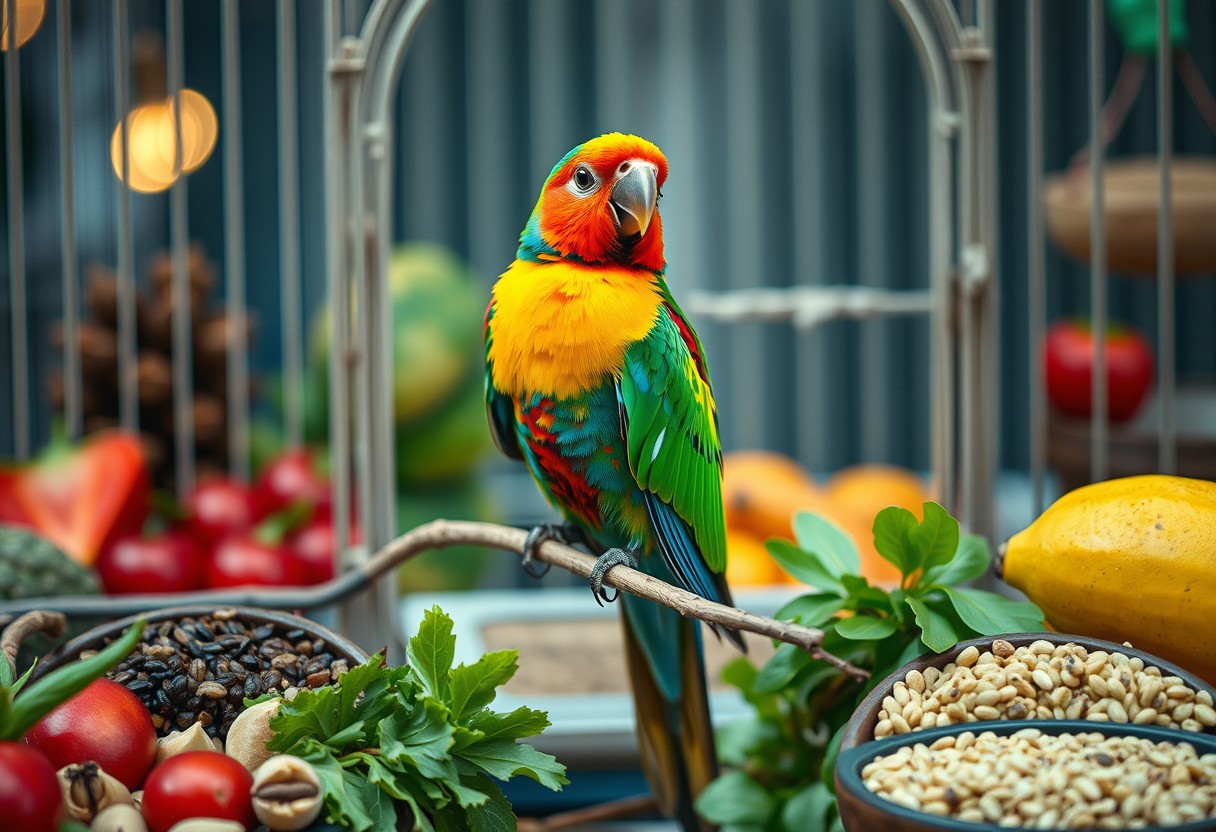
Tips for Maintaining a Healthy Diet
All birds thrive on a healthy diet that ensures their well-being and longevity. By following some simple tips, you can help your feathered friends enjoy a balanced diet rich in necessary nutrients. Here are a few key strategies:
- Provide a variety of fresh fruits and vegetables daily.
- Offer high-quality pelleted food as a staple in their diet.
- Limit seeds to occasional treats, as they are often high in fat.
- Ensure clean, fresh water is always available.
- Introduce grains and legumes for added protein and fiber.
After ensuring that your birds get a diverse range of nutrients, it’s vital to focus on the composition of each meal to promote optimal health.
Creating a Balanced Meal Plan
Healthy birds require a well-structured meal plan that encompasses a wide variety of foods. You should consider incorporating leafy greens, colorful vegetables, and fruits into your birds’ meals to ensure they receive the vital vitamins and minerals they need. Aim for a mix that includes different textures and tastes, as this will keep your birds engaged and excited about meal times.
It’s also necessary to rotate the foods you offer. This practice not only helps prevent boredom but also ensures that your birds receive a broad spectrum of nutrients. You might want to schedule meals that alternate between fresh produce, pellets, and occasional treats to create a balanced diet tailored to your birds’ specific needs.
Avoiding Harmful Foods
Balanced nutrition goes hand-in-hand with avoiding harmful foods that can jeopardize your birds’ health. Your next step should focus on identifying and eliminating potentially dangerous items from their diet. Certain foods, such as chocolate, avocado, and onion, can be toxic to birds, leading to severe health issues and even death. Make it a priority to educate yourself on what’s safe and what’s not.
Plus, it’s important to avoid giving your birds processed foods that are rich in sugar, salt, or fat. These ingredients can lead to obesity, heart disease, and other serious health problems in birds. Stay vigilant and read labels to ensure that your feathered companions get only the best.
Monitoring Dietary Changes
To keep your birds in tip-top shape, consistently monitor any changes in their eating habits. Birds can be very sensitive to dietary adjustments, and even a subtle shift can indicate underlying health problems. Watch for signs of weight loss, changes in droppings, or decreased activity as indicators that something may be wrong with their current diet.
Creating a habit of recording your birds’ food intake and any notable changes will provide you with valuable insights over time. This will help you recognize patterns and make necessary adjustments to their meal plan, ensuring they attain optimal health and happiness.
To wrap up
Ultimately, providing your birds with a healthy diet is crucial for their overall well-being and longevity. By ensuring they receive a balanced intake of fruits, vegetables, seeds, and specialized pellets, you can help prevent common health issues and promote a vibrant and active lifestyle. A nutritious diet not only supports their physical health but also enhances their mental stimulation and social behaviors, making for happier and more engaging companions. Understanding the specific dietary needs of your bird species will empower you to make informed choices that lead to a thriving, healthy pet.
Moreover, investing time in preparing varied meals that cater to your bird’s preferences and nutritional requirements can strengthen your bond and enrich their life. You have the opportunity to be proactive in your bird’s care by educating yourself about the foods that best benefit their health. As you prioritize your feathered friend’s diet, you can rest assured knowing that you are setting them up for a vibrant life filled with joy, energy, and longevity.
FAQ
Q: What are the primary benefits of a healthy diet for birds?
A: A healthy diet for birds provides numerous benefits that are crucial for their overall well-being. Firstly, it promotes optimal physical health by ensuring that birds receive the necessary nutrients, vitamins, and minerals to support bodily functions and maintain a healthy weight. Secondly, a balanced diet helps improve their immune system, making them more resilient to diseases and infections. Additionally, proper nutrition can enhance their plumage quality, ensuring vibrant colors and healthy feathers, which are vital for insulation and flight. Ultimately, a healthy diet contributes to increased longevity and a better quality of life for birds.
Q: How does a healthy diet impact a bird’s behavior and mental health?
A: A healthy diet not only affects a bird’s physical health but also plays a crucial role in their behavior and mental well-being. Nutrient-rich foods, such as seeds, fruits, vegetables, and high-quality pellets, can lead to increased energy levels and improved mood. Birds that are well-nourished are less likely to exhibit signs of stress, aggression, or boredom. Proper nutrition can also support cognitive functions, aiding in learning and social interactions. Moreover, providing a varied diet can stimulate a bird’s curiosity and encourage natural foraging behaviors, which are vital for their mental enrichment and overall happiness.
Q: What types of foods should be included in a bird’s healthy diet?
A: A well-rounded bird diet should include a variety of foods to ensure they receive all necessary nutrients. Key components of a healthy avian diet consist of high-quality pellets, which provide a balanced source of vitamins and minerals. Fresh fruits and vegetables should also be included, such as leafy greens, carrots, berries, and apples, which offer crucial antioxidants and fiber. Additionally, small amounts of seeds and nuts can be given as treats, but they should not make up the majority of a bird’s diet due to their high-fat content. It is important to avoid offering processed foods and those that are toxic to birds, such as chocolate, avocado, and caffeine. Consulting with a veterinarian or avian nutritionist can help determine the ideal diet tailored to specific bird species.
